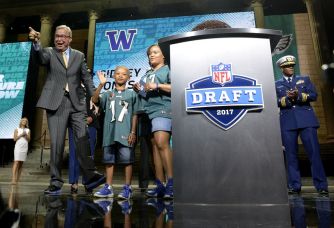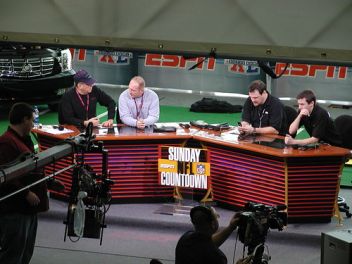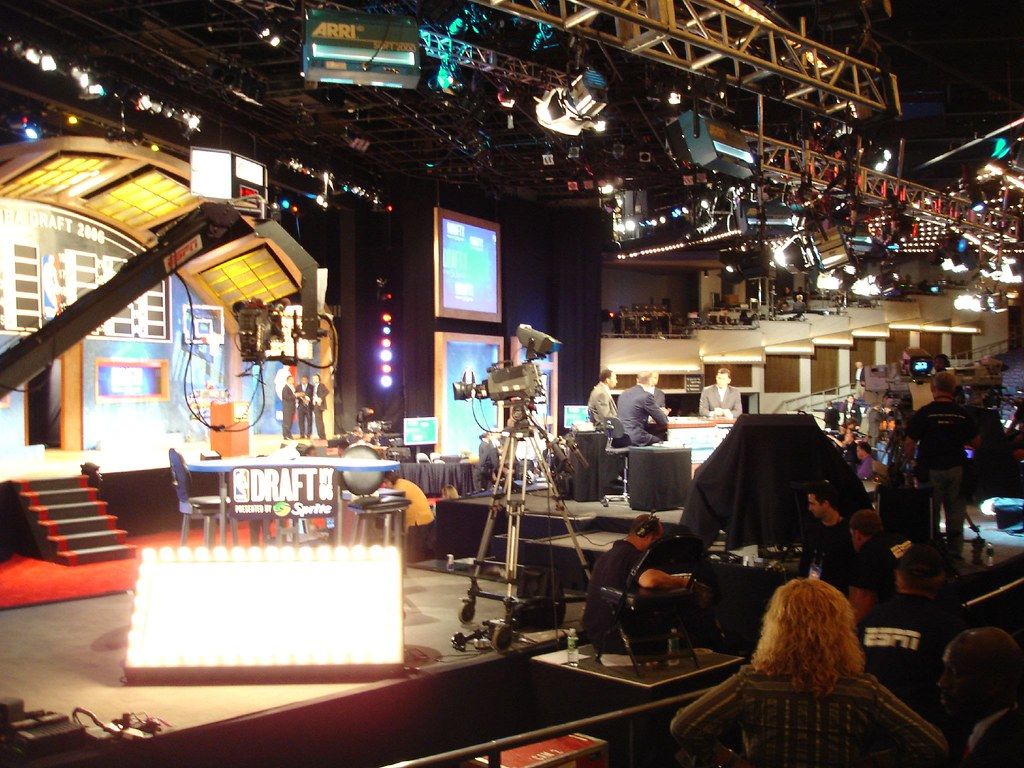Hall-of-Fame Eagles quarterback helped launch a new 18-credit sports communication minor. He spoke to approximately 65 students and alumni on Wednesday, Feb. 10. The school widely suggests that the minor should be paired with a major in Digital Communication & Social Media, to land a job as a comm professional more efficiently in the sports industry. Bringing in someone with an eminent sports background, from both a player and analyst point of view, was just what the communication department needed to ignite the flame
The meeting featured prepared questions asked by students and was moderated by Emmy award-winning broadcaster, Lou Tilley, who will also be joining the Cabrini family as a key instructor in the program. He stressed the idea that play-by-play announcing and broadcasting will be covered in the minor, and that it takes some important points of emphasis that he and Jaworski can give insight on from firsthand experience.
Ron Jaworski played 15 seasons in the NFL from 1974 to 1990, which consisted of three years with the St. Louis Rams, 10 years of Philadelphia Eagles, one with the Miami Dolphins, and one with the Kansas City Chiefs. Right after his playing days, he began a 27-year run with ESPN as a sports analyst and commentator from 1990 to 2017, covering areas such as Monday Night Football from 2007 up until his final days with the network.

He has worked with notable announcers such as Jon Gruden, Mike Tirico, Kevin Harlan and Tony Kornheiser and has overall carved out an eminent broadcasting career over the past few decades. He has also found success in his entrepreneurial exploits such as being one of the founders of the Philadelphia Soul, and owning seven golf courses across Pennsylvania and New Jersey. While answering questions in the early part of the panel, he wasted no time mentioning the commitment and work ethic that has to go into building a career in that industry.
“The average career of an NFL player is 3.1 years, so me playing at the highest level for 15 years took the same amount of preparation and work ethic as it did to develop a long-running media career,” Jaworski said. “Everything from researching all 22 guys on the field to know their background to be able to give insight on them if a player is going off, to also being in tuned with the technical side of everything behind the camera on live broadcasts, to overall being concise and not rambling goes into being prepared to talk about and call a game.”
As he spoke on all the little things he had to learn from the greats when entering media, even when he thought he was already a good commentator, he mentioned how no matter what position you find in the industry it’s important to have an all-around knowledge of the production set. This was key to mention considering how this will also be a point of emphasis that will be instilled into and gone over with the students in the minor.
“Don’t think just because you are pursuing this career that you have to be the face in front of the camera,” the former Eagles quarterback said. “There are plenty of opportunities and places looking for writers, directors, producers, and etc. where one of you can excel while contributing to the production.”

Speaking on his overall growth, past experience and how he wasn’t always as prepared and great as he thought he was, was a good start to make sure humility was instilled into the students. Explaining that he surely didn’t find success as an analyst overnight, helped keep things real and let students know that the road isn’t going to be easy but will be a fun path for the ones who have a passion for it.
“The electric atmosphere that a commentator brings to the game while connecting the fans to the action of the play is what really had me fascinated,” La Salle University sophomore Sean Cornely said. “I’m glad I got the chance to announce the basketball games and do the football pregame shows at my high school because it gave me a sense of what one would have to do in order to actually be successful in that field. Everything from researching the opposing players, to knowing what matchups are a rivalry, to even getting down the pronunciation of names, told me that anybody that would actually be interested in sports analyst would have a lot of small details to tackle.”
More and more students, especially in the communication major, have gravitated towards this career field since the minor was introduced, that truly believe they can find success with their basic sports and broadcast knowledge. Many of them felt as if this was a career path that you see on television daily but can never find a path to actually get into, so the way the university is making it an accessible reality to many students will surely create a new journey that has just started to unfold, for both Cabrini and aspiring sports analyst.



